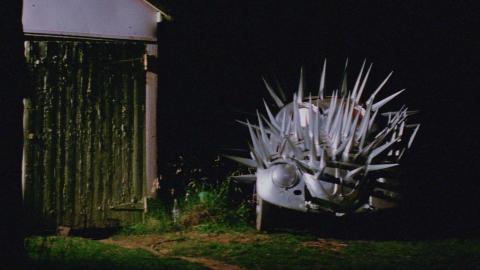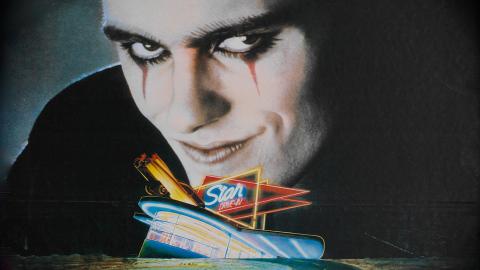
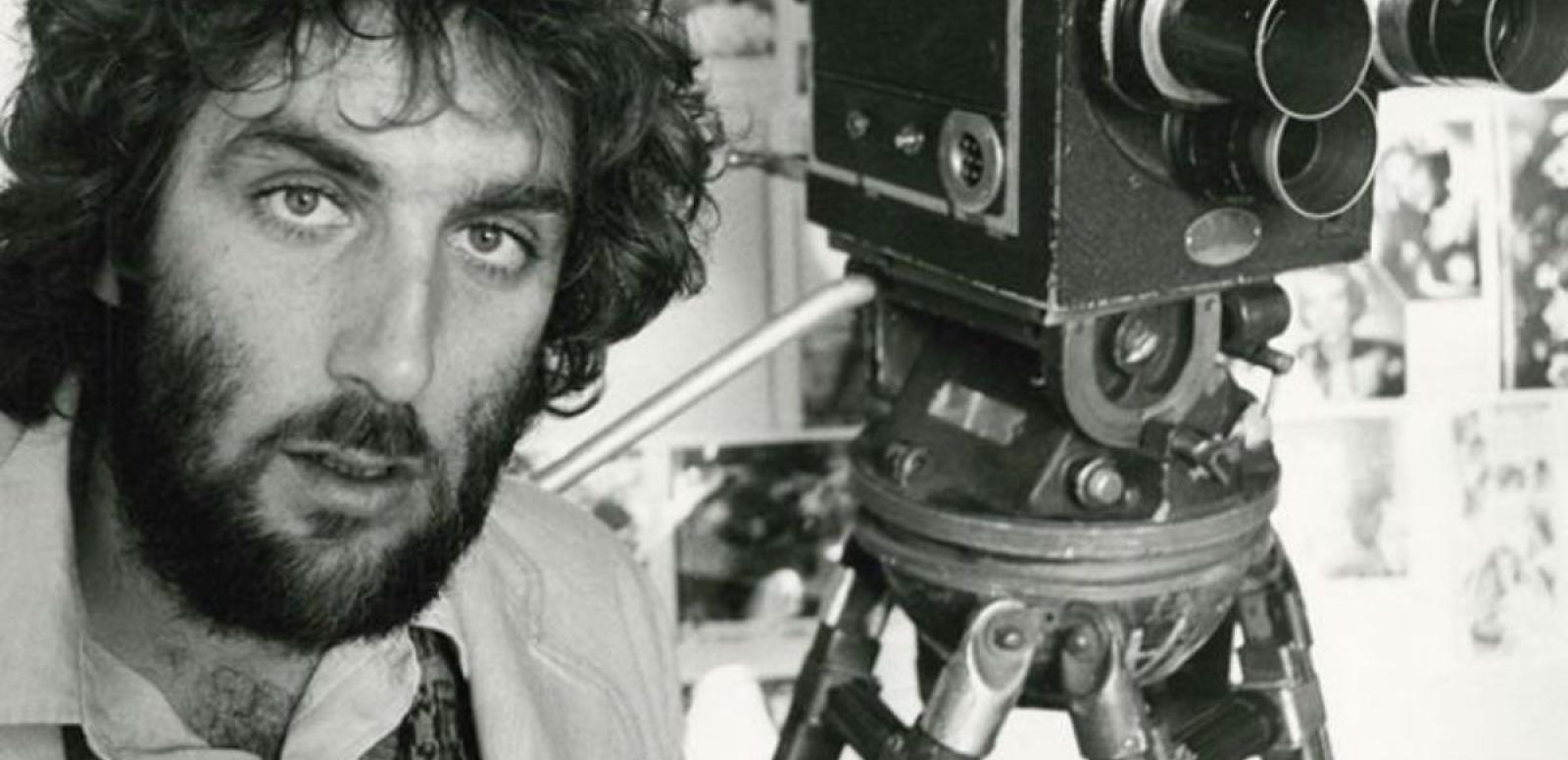
Phillip Noyce
The Early Films of Phillip Noyce
The NFSA has made available Phillip Noyce’s 1971 Aquarius Festival documentary Good Afternoon plus several of his early short films.
Internationally renowned for Patriot Games (1992), The Bone Collector (1999), Rabbit-Proof Fence (2002) and Salt (2010), director Phillip Noyce found earlier success in Australia with his features Newsfront (1978) and Dead Calm (1989).
But even before that he made his start as an active and innovative filmmaker in the avant-garde and experimental scene of the early 1970s.
Early experiments
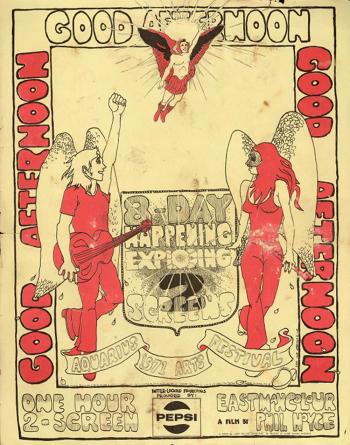
While still at high school in Sydney, Noyce discovered the work of the experimental filmmaking collective UBU Films, featuring local artists like Albie Thoms, Aggy Read and David Perry. Noyce sold shares to friends to make his first film for $600, Better to Reign in Hell (1969).
His early experience of crowdfunding backfired when he offered the lead role to the person who invested the most money, who turned out to be a lousy actor.
During the 1970s Noyce experimented using a ‘single frame camera’ approach – shooting one frame at a time in a montage style – and produced two one-minute works, Home and Sun.
Memories, a contemplative film of flames in a fireplace and smoke drifting through a bush setting was to have been screened with a ‘smell track’ of burning eucalyptus leaves.
He shot Intersection in the middle of a busy road junction where the camera rotates on the spot, faster and faster, to the sound of a blaring car horn.
The Age of Aquarius
In 1971 the Australian Union of Students funded Noyce to film the eight-day Aquarius Arts Festival at the Australian National University in Canberra. The result was Good Afternoon. He framed the film as a two-screen synchronised screening – one colour and one black-and-white – with sound moving between the frames as needed.
Noyce planned the 58-minute run time of Good Afternoon to fit within a university lunch hour and toured the film around the national campus circuit. He secured sponsorship to pay for the dual interlocked film projectors and these were sent along with the film. In Sydney, the film was screening daily for a time at the Co-op Cinema in Glebe and returned money to the filmmakers.
You can see Phil Noyce in this extended trailer for Good Afternoon (1971), where he offers advice about operating the film camera:
Promotional clip for Good Afternoon (Phillip Noyce, 1971).
Finks, Fragments and film school
Noyce was selected in 1973 for the Directors course in the first intake of 12 students at the Australian Film, Television and Radio School (AFTRS). His classmates included directors Gillian Armstrong (My Brilliant Career, 1979) and Chris Noonan (Babe, 1995). The school funded students to make up to three films a year using professional crews. While at film school, Noyce made the short films Caravan Park and That’s Showbiz and the documentary Castor and Pollux, which won the Rouben Mamoulian Award at the 1974 Sydney Film Festival.
While filming with the Finks Motorcycle Club for Castor and Pollux, he also made Finks Make Movies (1973), a separate short which has rarely been screened. He made Renegades: Fragments From a Diary of Three Years’ Experience 1970-1973 in 1974 with then-student, now-actor George Shevtsov performing extended sneezes in front of bemused lunchtime crowds in the city.
The image gallery below features behind-the-scenes images from the making of Finks and Renegades:
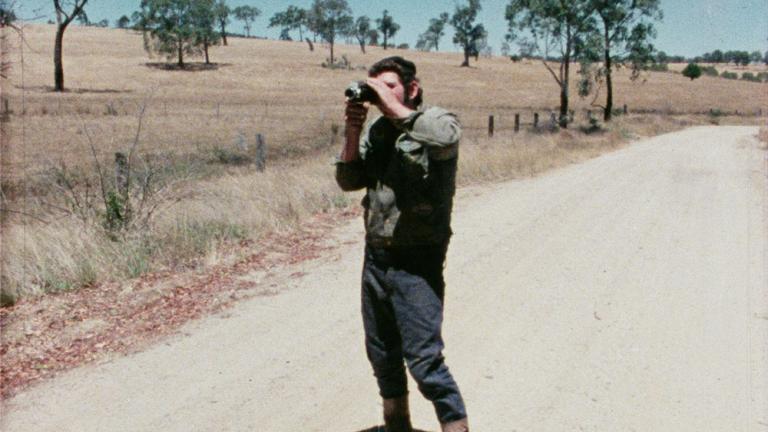
Film still from Phillip Noyce's short film, Finks Make Movies (1973).
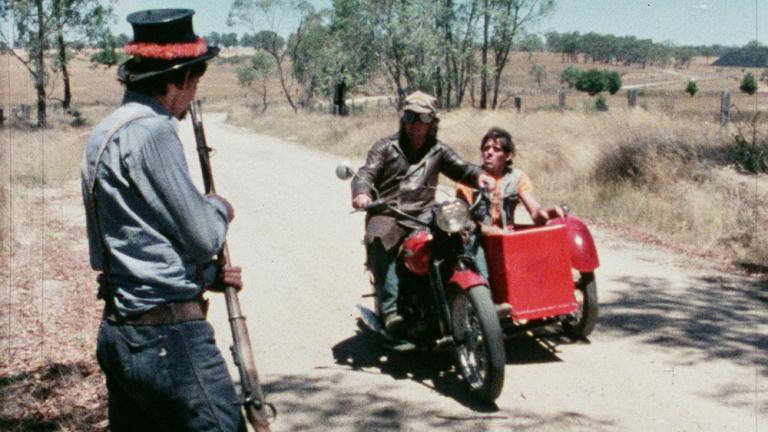
Film still from Phillip Noyce's short film, Finks Make Movies (1973).
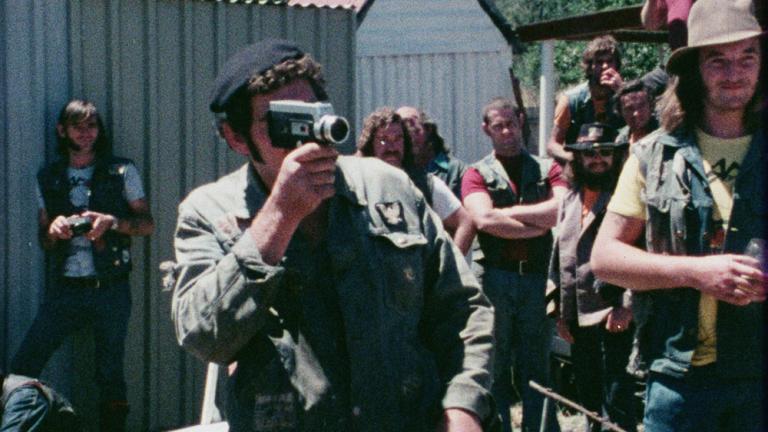
Film still from Phillip Noyce's short film, Finks Make Movies (1973).
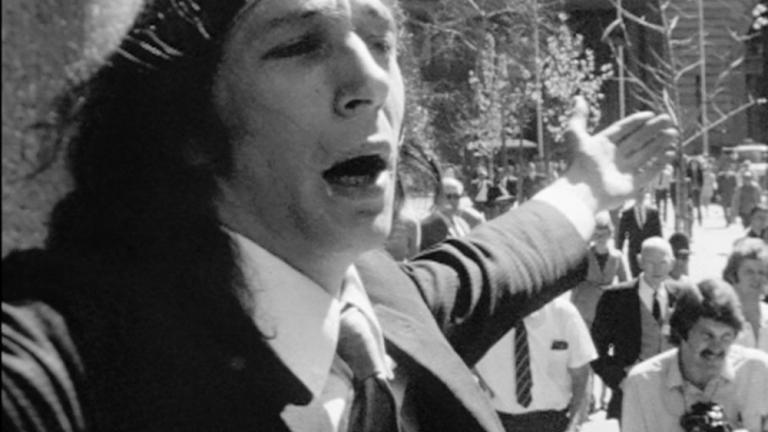
Film still from Phillip Noyce's short film Renegades: Fragments from a Diary of Three Years' Experience 1970–1973 (1974).
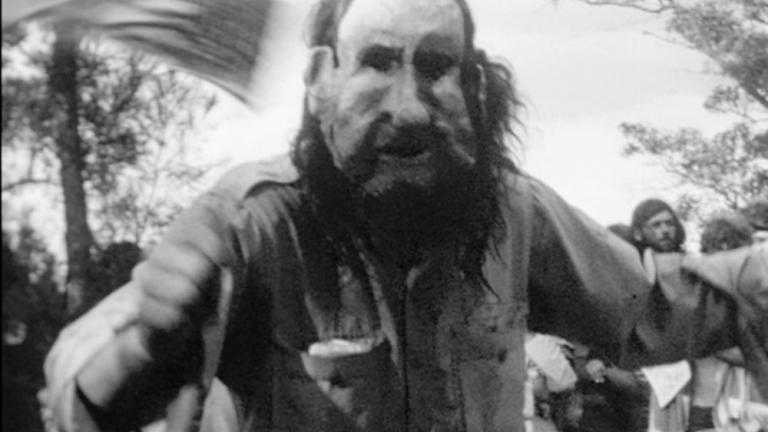
Film still from Phillip Noyce's short film Renegades: Fragments from a Diary of Three Years' Experience 1970–1973 (1974).
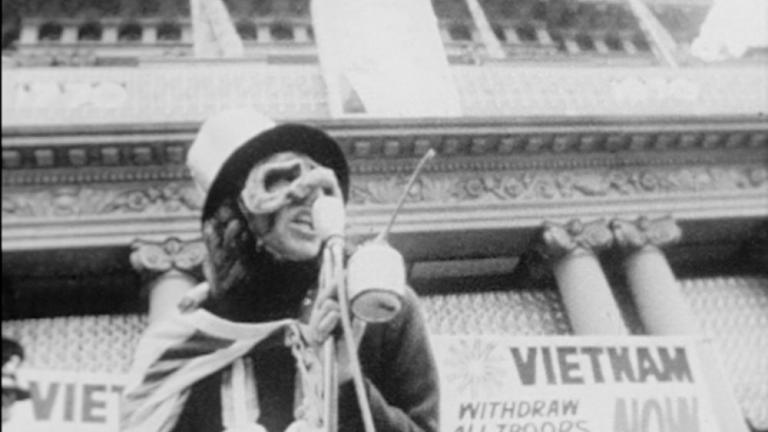
Film still from Phillip Noyce's short film Renegades: Fragments from a Diary of Three Years' Experience 1970–1973 (1974).
After AFTRS, Noyce made God Knows Why, But It Works (1976), his first professional documentary for Film Australia. From there he developed the short feature Backroads (1977) followed by his first dramatic feature, the award-winning Newsfront (1978).
Six of Noyce’s early short films and the complete documentary Good Afternoon are now available for the first time, exclusive to the NFSA Online Shop.
Good Afternoon – Phillip Noyce Early Works 1970-1974 includes: Good Afternoon (1971), Home (1971), Sun (1971), Memories (1971), Intersection (1971), Finks Make Movies (1973) and Renegades (1974).
The National Film and Sound Archive of Australia acknowledges Australia’s Aboriginal and Torres Strait Islander peoples as the Traditional Custodians of the land on which we work and live and gives respect to their Elders both past and present.
